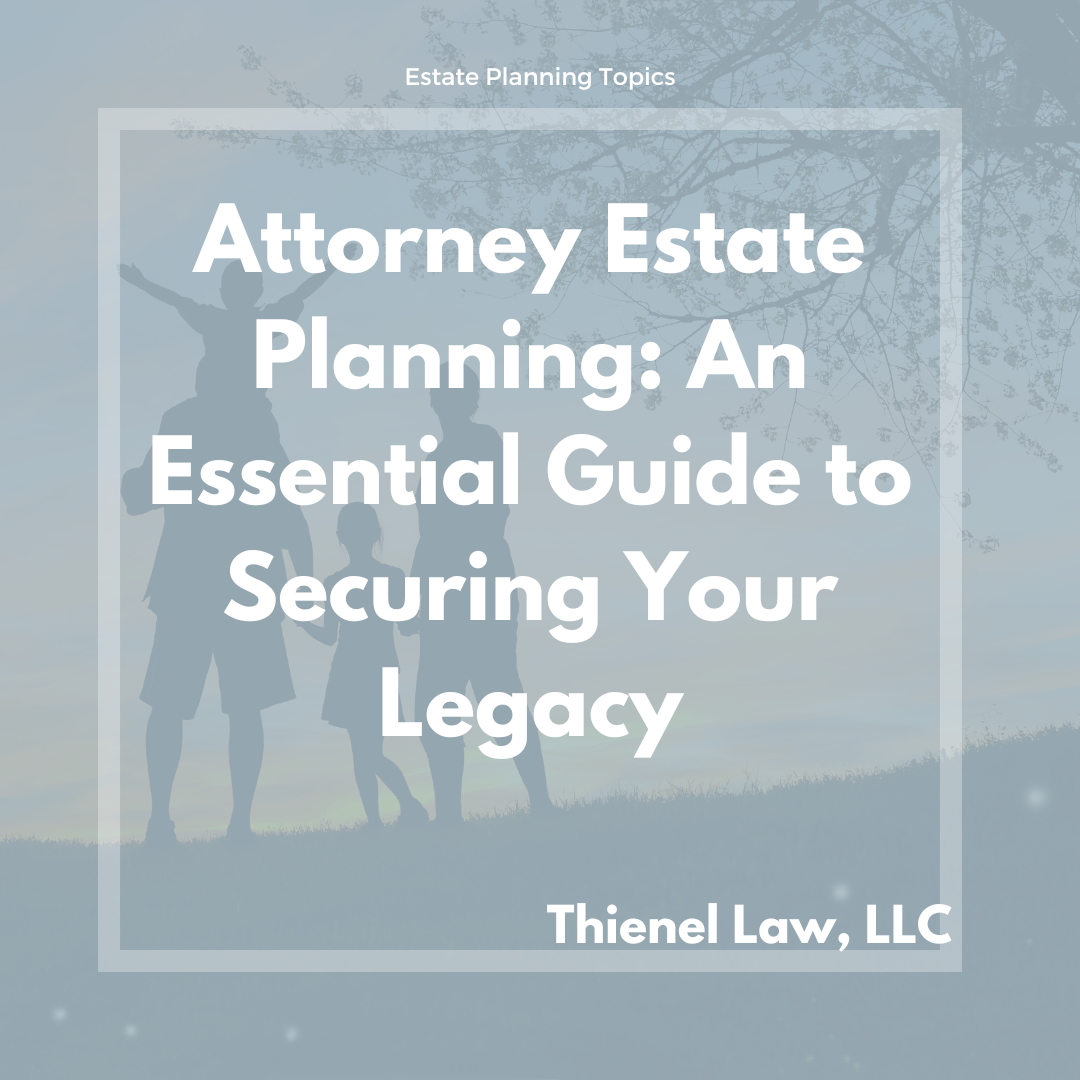
Virginia Estate Administration Attorney
Administering a probate estate or managing a trust can be daunting, especially if you have never servedin either capacity before now. As a Virginia Estate-Administration attorney and a Virginia Trust Administration attorney, I assist individuals with estate planning, including drafting trust agreements, wills, and other estate documents.
However, I also assist Personal Representatives and Trustees in the administration of estates and trusts. Below are several of the common questions that clients ask me about estate and trust administration.
Who Appoints the Trustee or Personal Representative to Administer the Estate?
You may be appointed as a Personal Representative in a will or by the probate court. Usually a person names someone to serve as the administrator of the estate in his or her will. If there is no will or the person named in the will cannot or will not serve, the court names someone to serve as the Personal Representative. In most cases, a surviving spouse or child petitions the court to serve as the Personal Representative if there is not a will.
In a trust agreement, a Trustee is named to manage the trust, according to the terms in the trust agreement. Unlike a probate estate, the court does not appoint the Trustee or approve of the choice of a trustee. A court might become involved in the matter if the beneficiaries file a lawsuit or petition to remove the Trustee for a breach of fiduciary duty or other wrongdoing.
What are the General Duties of a Personal Representative and Trustee?
The duties of a Personal Representative and Trustee vary because each situation is unique. However, there are common tasks and responsibilities that all administrators are expected to perform.
Usually a Personal Representative must take these steps when administering an estate:
· Locate the original will or make a good faith effort to determine if a will exists
· Complete and file the documents to open an estate
· Notify the heirs and creditors of the estate
· Identify the property owned by the decedent at the time of death and prepare an inventory of the property
· Secure the property for the estate
· Review and pay valid debts of the estate
· File tax returns and pay taxes for the decedent and the estate
· Distribute property to heirs according to the terms of the will, intestate laws, or a court order
· Complete a full accounting and file the paperwork to close the estate
Usually a Trustee must take these steps when administering an estate:
· Review the entire trust agreement to ensure you are familiar with the terms and understand requirements
· Identify property and assets held by the trust and ensure those assets and property are secure
· Manage the property and assets under the terms of the trust agreement
· Prepare inventories, accountings, notices, tax returns, and tax documents as necessary
· Disburse or distribute funds and/orproperty from the trust to the beneficiaries according to the terms of the trust agreement
As an experienced Virginia Estate-Administration attorney, I can assure you that the above lists are not comprehensive lists of all duties and responsibilities of an administrator. I assist Personal Representatives and Trustees as they perform the above tasks and other duties related to administering an estate.
What is a Fiduciary Duty? Can I Get into Trouble as a Personal Representative or Trustee?
A fiduciary duty is a position of trust you hold as an administrator of an estate or trust. You must act in the best interest of the heirs and beneficiaries, and you carry out your duties and manage the property held by the estate or trust. If you mismanage funds or property, you could be held liable for any losses. Likewise, if you are negligent or commit fraud or other wrongdoing, you could be held civilly liable for a breach of fiduciary duty.
I can help you understand your role as a fiduciary as a Virginia Estate-Administration attorney.
Does an Administrator Need to Submit a Formal Inventory and Accounting?
As part of the duties as a Personal Administrator or Trustee, you would have to submit formal inventories and accountings. A Personal Representative must complete an inventory of all property in the estate, including the location of the property, any liens against the property, and the value of the property. All heirs are entitled to a copy of the inventory. Throughout the estate process, the Personal Representative may need to complete various accountings, including a final account that must be approved by the court before the estate may be closed.
Trustees are also responsible for completing inventories and accountings. A Trustee is accountable to the beneficiaries of the estate. The beneficiaries are entitled to receive periodic inventories and accountings to ensure that the Trustee is managing the trust assets in the best interest of the beneficiaries.
Preparing these forms and meeting deadlines for these forms can be challenging. A Virginia Trust Administration attorney or a Virginia Estate-Administration attorney can be an immensely useful source of support, guidance, and legal advice.
Does a Trustee or Personal Representative File Taxes for the Estate or Trust?
A probate estate might require a tax return. Likewise, it might not be necessary to file a final personal income tax return for the decedent. The Personal Representative must determine if tax returns are requiredas part of the estate administration process. If so, the tax returns must be completed by the deadline and filed with the appropriate government agencies to avoid taxes and penalties.
Trustees are responsible for filing tax returns for the trust and other tax documents for the trust. The Trustee is also required to prepare and file any tax documents required by the beneficiaries.
Tax issues can be one of the most confusing and time-consuming issues that a Trustee or Personal Representative faces. An experienced Virginia Estate-Administration attorney can help relieve the stress by taking some burdens off your shoulders so you can focus on other matters and family members.
Experience You Can Trust
If you have questions about administering an estate or a trust, I encourage you to contact my office to discuss your concerns. Being responsible for assets in an estate or a trust can be overwhelming, especially if you are not familiar with estate law, trust law, and laws governing fiduciaries. If you need a trusted Virginia Estate-Administration attorney or Virginia Trust Administration attorney to help you navigate complex administration laws, contact my office to schedule a time for us to discuss your situation, questions, and concerns.
You Might Also Be Interested In…
Estate Planning: Top 50 Questions Answered
Estate planning can be an uncomfortable and overwhelming process. It doesn’t have to be. Armed with the information you need, estate planning can be an empowering process that takes a load of stress off of you and your family. Get the answers to the top 50 estate-planning questions from an experienced Maryland estate-planning attorney.












